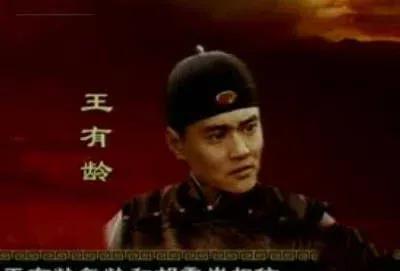In September of the eleventh year of Qing Xianfeng (1861 AD), Li Xiucheng, the loyal king of the Taiping Heavenly Kingdom, threatened to break the "Jiangnan Camp" and enter Zhejiang from Gansu. Before that, Li Xiucheng had a gram of Hangzhou, because Tianjing was besieged, Li Xiucheng had to return to the division to rescue. This siege-breaking battle was the last cooperation between Li Xiucheng and the British king Chen Yucheng, and from then on, Li Xiucheng only managed what he considered to be a fiefdom in Jiangsu and Zhejiang, completely ignoring the decisive battle between Chen Yucheng and Zeng Guofan on the Anqing side.
Li Xiucheng's second attack on Hangzhou was one of the battles in the history of the Taiping Heavenly Kingdom War. In the battle, the taiping army generals, under the command of Li Xiucheng, completely annihilated the Qing army's defenders in Hangzhou, and all the Hangzhou city officials except for the killing, the remaining officials committed suicide to avoid humiliation. So why did Wang Youling, the governor of Zhejiang, the only one among the many officials who died, get a thick burial from Li Xiucheng? What are the deep reasons for this?

Wang Youling was a rare Qing official and official in the Jiqing era, and all this was completely inherited from his father's excellent genes. Since he was a child, he was clever and preached the Great Festival, but because he disdained the Eight Strands of Literature, his father had to donate officials for him.
From Renzhi County to Zhejiang Governor, Wang Youling adhered to the clean and honest family style, and achieved a rare and valuable achievement of "serving as an official and benefiting one party" in that era, and his behavior far exceeded that of the corrupt officials who claimed to benefit the people today.
In the tenth year of Xianfeng (1860 AD), the Taiping Army marched into Jiangsu and Zhejiang, and Wang Youling, who was then the envoy of Jiangsu Province, planned in advance, and after a bitter battle, with the active cooperation of the general Zhang Yuliang, he recaptured Hangzhou. Because of this merit, Wang Youling was promoted by the imperial court to the post of Governor of Zhejiang.
At that time, Li Xiucheng of the Taiping Army was running Jiangsu and Zhejiang, Suzhou was already the capital of the Taiping Army, and with the active cooperation of his brother Li Shixian, Jiangsu and Zhejiang Prefectures were basically controlled by the Taiping Army.
At this time, Zeng Guofan and the Xiang army had already marched to an qingcheng, and in the face of the strict orders of the imperial court to rescue, the old and treacherous Zeng Guofan only refused to send troops. He had only one goal, that is, to take Anqing, the last gateway of Tianjing. Because only by taking Anqing could the Taiping Heavenly Kingdom be destroyed quickly.
When Wang Youling was the governor of Zhejiang, the Taiping Army had already broken through the Jiangnan camp, and Li Xiucheng, the loyal king of the Taiping Heavenly Kingdom, was bound to win against Hangzhou since he seized Suzhou. For this reason, Li Xiucheng led an army of 200,000 men from Jiangxi to Hangzhou again.
When the news reached Hangzhou, Wang Youling asked Zuo Zongtang, who was fighting the Taiping Army on the Battlefield of Jiangsu, for help, but Zuo Zongtang refused to send troops to aid Hangzhou for various reasons. Helplessly, Wang Youling had to organize a limited number of troops to resist the taiping army's attack.
On November 17 of that year, the Taiping Army attacked all the outer positions in Hangzhou and then besieged the ten city gates of Hangzhou. At the critical moment, the General Ruichang of Hangzhou in the Qing Dynasty refused to cooperate with Wang Youling, so Wang Youling had to rely on the Extremely Weak Green Battalion to defend the city. In order to encourage the fighting spirit of the defenders of the city, Wang Youling, in addition to personally wearing armor and patrolling around, also asked his family to send meals to comfort the hearts of the army.
However, all these measures could not resist the attack of the 200,000 Taiping Army, and after many days of fierce fighting, Qingbo Gate first attacked Chen Bingwen for Li Xiucheng's troops, and although Wang Youling led his troops to put up stubborn resistance, the gates of the city fell one after another, and Wang Youling had to retreat to patrol Yamen while fighting. At this time, he knew that his limit had arrived. Despite this, he still wrote his last words in person, hoping that Li Xiucheng would not kill the people after he broke the city. After writing his suicide note, he strictly ordered his own soldiers to find a way to survive, but none of the soldiers escaped until all of them were killed. Before the fall of inspector Yamen, Wang Youling, who had written his suicide note, hanged himself.
Because Wang Youling had a clear reputation, before the siege of the city, Li Xiucheng strictly ordered his men to kill everyone on the day when the city was broken, but not to injure The King.com. Because of this, on the day the city was destroyed, Li Xiucheng buried Wang Youling, and at the same time specially allocated 3,000 taels of silver, ordering Wang Youling's family to return his coffin to the Fujian official-in-waiting.